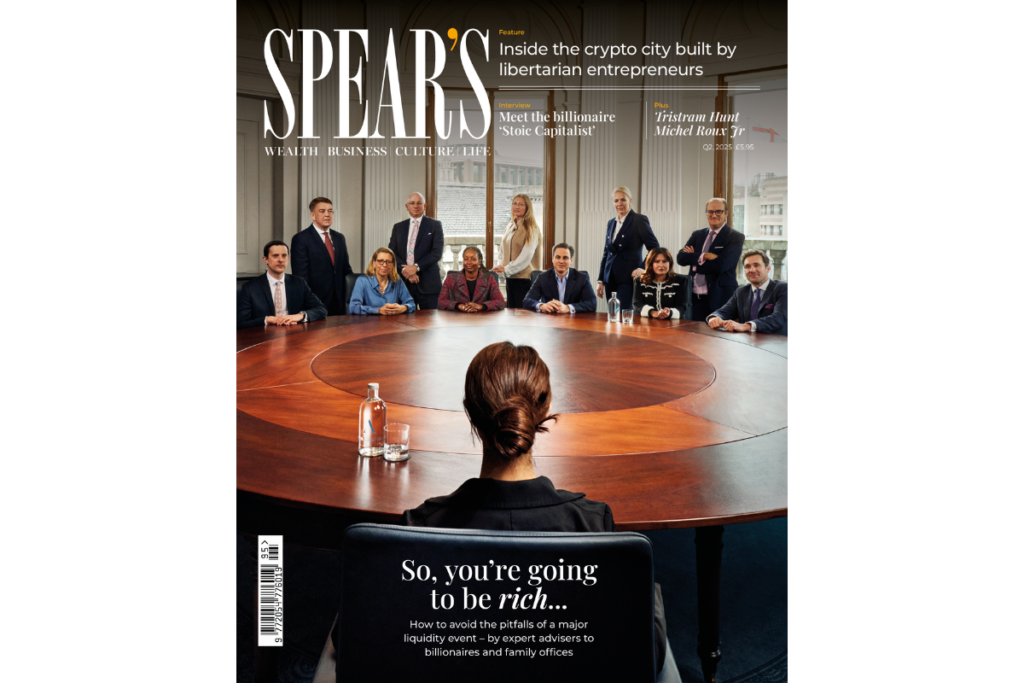
In the little more than 100 days since Donald Trump took office, the world seems to have shifted on its axis. It could have all been so different – for better or worse – if the Democrats had had a stronger succession plan. By clinging on for too long, President Biden left his party little time to prepare for the end of his tenure.
Succession in families is often as problematic and laden with emotions as that in a political party. All too often, a family principal simply never retires until ill health or death bring it about. Family squabbles ensue, as others jockey for position to fill the void left behind. Alan Crosbie, a businessman who lectures on such matters, likens the running of a family business to flying a plane, and the process of succession to landing a plane and then taking off again. So what are the keys to negotiating this pivotal moment successfully?
[See also: The best probate and wills lawyers in 2024]
Human capital
Family governance guru Jay Hughes distils it to its essence: it is ‘a question of human behaviour’. Trust and estate planning practitioners will attest that the human element in succession planning is often under-prioritised, taking a back seat to concerns around financial capital. Hughes believes it should be the other way round. His own ‘Road to Damascus’ moment came after more than two decades as an estate planning lawyer when he realised that despite best laid plans, he was doing little to save his family business clients from the ‘shirtsleeves to shirtsleeves’ prophecy which still befalls many families by the third generation.
He started a journey of discovery which led him to conclude that the true wealth of a family consists primarily of its human capital, and that the preservation of this type of capital rests on the family’s ability to define and then pass down a social compact which reflects their shared values.
It’s a nice idea, but is it really possible today, when children are unlikely to see the world in the way their parents or grandparents did? Through my work with families, I have come to realise that sharing a value system and mission as a family does not mean agreeing on everything or even seeing the world through the same lens. If the value system of a family acknowledges and respects individual views and differences, there is no reason why it cannot be a powerful unifying force.
[See also: Why female heirs still miss out in succession planning]
Educating the next generation
One common thread that runs through families that have succeeded over time is that they dedicate resources and effort to family education programmes for rising generations, generally involving three types of learning: classroom learning, coaching and practical experience. Some use a structured development plan for each family member. Others are more flexible and leave the next-gen to develop their own plans, with guidelines about the level and nature of financial support they will be entitled to.

Another important component is setting aside time to organise regular family meetings. These often have some learning sessions built in, but the real value is in forging bonds and creating shared experiences. For this to be effective, it requires each member to commit to attending – and to doing some preparation in advance. This preparatory work can include family members of all ages thinking about what they would, in time, tell their grandchildren have been the most important events in their lives. This can be a valuable exercise in helping family members understand one another, emphasising shared values.
[See also: How to prevent a Murdoch succession drama]
The multi-generational approach
Sammy Lee, a second-generation family business member and author of The Autopilot Leadership Model, goes further and advocates for a culture where everyone can learn from each other. A senior family member can be coached by a younger family member in staying safe in the cyber world for example, just as much as the younger family member can be coached by the senior in negotiation skills. A spin-off benefit of this approach is that it fosters inter-generational communication and teamwork.
It’s crucial to understand the power of a high-functioning team, or as one family principal defined it, the collective ‘family brain’. His description reminded me of the ‘Master Mind’ principle in Napoleon Hill’s seminal work, Think and Grow Rich! Written in 1937, it is as relevant today as it was then. Hill studied hundreds of well-known entrepreneurs who had accumulated vast fortunes, among them Carnegie and Ford, all of whom understood that in order to succeed in their endeavours, persistence and intelligence alone were insufficient.
See also: ‘My father’s succession planning took two decades – now I help other wealthy families’]
They also needed what Hill defined as a Master Mind group – a team of individuals coordinating knowledge and effort in a ‘spirit of harmony’ for the ‘attainment of a definite purpose’. Get this right, and a family can not only endure, but reach new heights. Get it wrong and, when it comes to the crucial moment – the landing of the plane – it may prove impossible to get it off the ground again.
Annamaria Koerling is managing partner of Delfin Private Office
This article first appeared in Spear’s Magazine Issue 95. Click here to subscribe







